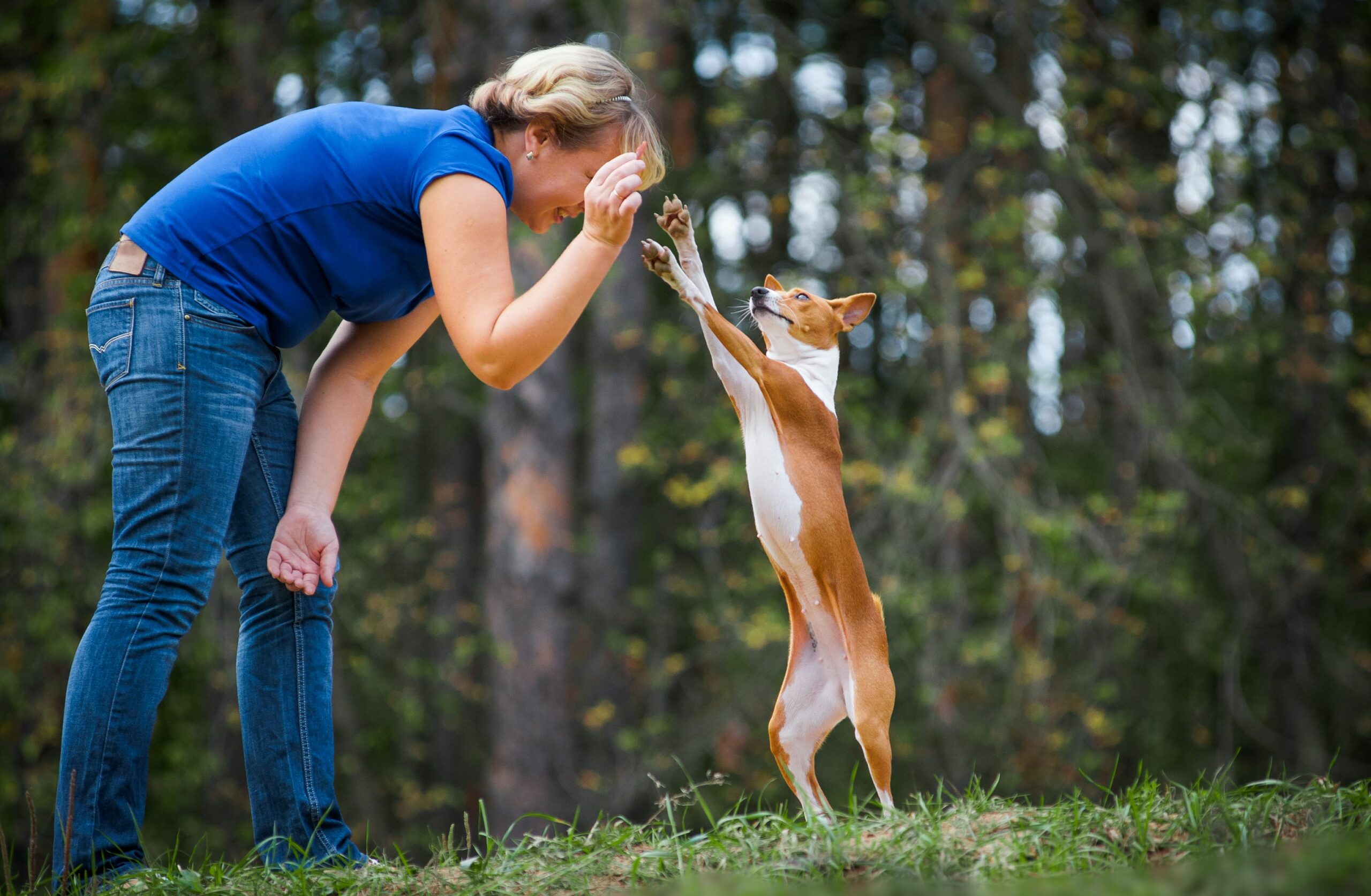The Basenji is an ancient breed of dog that originated in Central Africa. They were originally bred for hunting and have a unique set of characteristics that make them different from other dogs. They are known for their intelligence, independence, and stubbornness. This can make training a Basenji a challenge, but with patience, consistency, and the right techniques, you can successfully train your Basenji. In this article, we will explore tips and tricks for training your Basenji.
Understanding Your Basenji
Before you begin training your Basenji, it is important to understand their unique characteristics. Basenjis are intelligent dogs, but they are also independent and stubborn. This means that they can be difficult to train, but it is not impossible. Basenjis also have a strong prey drive and may chase small animals, such as cats, squirrels, or rabbits. They are also known for their howling, which is often compared to a yodel. Understanding your Basenji’s traits and characteristics will help you tailor your training approach to their needs.
Positive Reinforcement Training
One of the most effective training methods for Basenjis is positive reinforcement training. This approach involves rewarding your Basenji for good behavior and ignoring bad behavior. Rewards can include treats, praise, and playtime. Positive reinforcement training is effective because it reinforces good behavior and helps your Basenji understand what is expected of them.
When using positive reinforcement training, it is important to be consistent. You should reward your Basenji immediately after they display good behavior, so they understand why they are being rewarded. It is also important to use a consistent reward system, so your Basenji knows what to expect.
Consistency
Consistency is key when training your Basenji. Basenjis respond best to a consistent routine and training approach. This means that you should train your Basenji at the same time each day, use the same commands, and reinforce good behavior consistently.
If you are inconsistent with your training, your Basenji may become confused and frustrated, which can lead to bad behavior. Consistency is also important when it comes to correcting bad behavior. If you correct your Basenji for bad behavior one day, but not the next, they may not understand what is expected of them.
Socialization
Socialization is an important part of training your Basenji. Basenjis can be independent and aloof, which can make them wary of strangers and other dogs. Socialization can help your Basenji become more comfortable around new people and other animals.
Socialization should begin at a young age and should be done in a positive and controlled environment. You should introduce your Basenji to new people and animals slowly, and always reward good behavior. Socialization can also help your Basenji develop better communication skills, which can help prevent aggressive behavior.
Exercise
Exercise is important for all dogs, but it is especially important for Basenjis. Basenjis have a lot of energy and need plenty of exercises to stay healthy and happy. Without enough exercise, your Basenji may become destructive or develop bad behavior.
Exercise can also help your Basenji focus during training sessions. A tired Basenji is more likely to pay attention and follow commands than a restless one. Make sure to give your Basenji plenty of opportunities to run and play, such as taking them for long walks, runs, or playtime in a fenced-in yard.
Challenging Your Basenji
Basenjis are intelligent dogs and need mental stimulation to stay happy and healthy. This means that you should challenge your Basenji with new and interesting activities. This can include games, puzzles, and other mental challenges. Challenging your Basenji can help prevent boredom and bad behavior. You can also use training sessions as a way to challenge your Basenji mind. This can include teaching them new tricks, such as fetching, rolling over, or playing dead.
Training Techniques for Basenjis
There are several training techniques that are effective for Basenjis. These techniques can help you train your Basenji effectively and efficiently.
Clicker Training
Clicker training is a popular training technique that uses a clicker to signal good behavior. Clicker training involves using a clicker to make a distinct noise when your Basenji displays good behavior. This signals to your Basenji that they have done something right and that a reward is coming.
Clicker training is effective because it is a consistent way to reward good behavior. It also allows you to reward good behavior immediately, which can help your Basenji understand what they did right. Clicker training can be used in combination with positive reinforcement training for maximum effectiveness.
Target Training
Target training is a technique that involves using a target, such as a stick or a ball, to teach your Basenji to follow commands. This technique is effective because it helps your Basenji focus on a specific object, which can help them understand what you are asking them to do.
To use target training, you can start by holding a stick or ball in front of your Basenji and giving the command “touch.” When your Basenji touches the object, reward them with a treat or praise. You can then gradually move the object farther away and give the command “touch.” This helps your Basenji understand that they need to touch the object no matter where it is.
Leash Training
Leash training is an important part of training your Basenji. Basenjis can be independent and may pull on the leash during walks. Leash training can help your Basenji understand that they need to walk beside you and follow your lead.
To leash train your Basenji, you can start by walking them on a short leash and rewarding them for walking beside you. You can also use positive reinforcement training to reward your Basenji for good behavior on the leash. As your Basenji becomes more comfortable on the leash, you can gradually increase the length of the leash.
Crate Training
Crate training is a technique that involves using a crate as a safe and comfortable space for your Basenji. This technique is effective because it can help your Basenji feel more secure and prevent destructive behavior when you are away from home.
To crate train your Basenji, you can start by placing the crate in a quiet area of your home and encouraging your Basenji to explore it. You can also use positive reinforcement training to reward your Basenji for going into the crate. Gradually increase the amount of time your Basenji spends in the crate, and always make sure they have water and toys available.
Housebreaking
Housebreaking is an important part of training your Basenji. Basenjis can be stubborn and may be difficult to housebreak, but with patience and consistency, it is possible.
To housebreak your Basenji, you can start by establishing a consistent routine for taking them outside. You should take your Basenji outside immediately after they eat or drink, as well as first thing in the morning and before bed. You can also use positive reinforcement training to reward your Basenji for going to the bathroom outside.
When accidents do happen inside, it is important to clean them up immediately and not punish your Basenji. Punishing your Basenji can make them fearful and may lead to bad behavior.
Training Tips and Tricks
Here are some additional tips and tricks for training your Basenji:
Socialization
Socialization is an important aspect of training your Basenji. Socialization involves exposing your Basenji to a variety of people, animals, and environments to help them become well-adjusted and comfortable in new situations.
To socialize your Basenji, you can start by introducing them to people of different ages and ethnicities, as well as other pets. You can also take them to new environments, such as the park, the beach, or a pet store. Gradually expose your Basenji to new experiences and always reward good behavior with treats and praise.
Consistency
Consistency is key when training your Basenji. It is important to establish consistent routines and rules for your Basenji and to enforce them consistently. This can help your Basenji understand what is expected of them and prevent confusion or frustration.
Patience
Training your Basenji takes time and patience. Basenjis can be stubborn and may take longer to learn certain commands or behaviors. It is important to be patient with your Basenji and to avoid getting frustrated or angry. Consistent and positive training can help your Basenji understand what is expected of them.
Positive Reinforcement
Positive reinforcement is an effective training technique that involves rewarding good behavior with treats, praise, or toys. This technique is effective because it reinforces good behavior and helps your Basenji understand what is expected of them.
When using positive reinforcement, it is important to reward good behavior immediately and consistently. This can help your Basenji understand what they did right and encourage them to repeat the behavior in the future.
Avoid Punishment
Punishing your Basenji for bad behavior can be counterproductive. Punishment can make your Basenji fearful or anxious, which can lead to more bad behavior. Instead of punishing your Basenji, focus on rewarding good behavior and redirecting bad behavior.
Final Thoughts
Training your Basenji takes time, patience, and consistency. By using positive reinforcement training techniques, establishing consistent routines, and being patient with your Basenji, you can help them become a well-behaved and obedient companion.
Remember to always be kind and patient with your Basenji, and avoid punishing them for bad behavior. With time and patience, your Basenji can become a well-trained and well-behaved member of your family.









